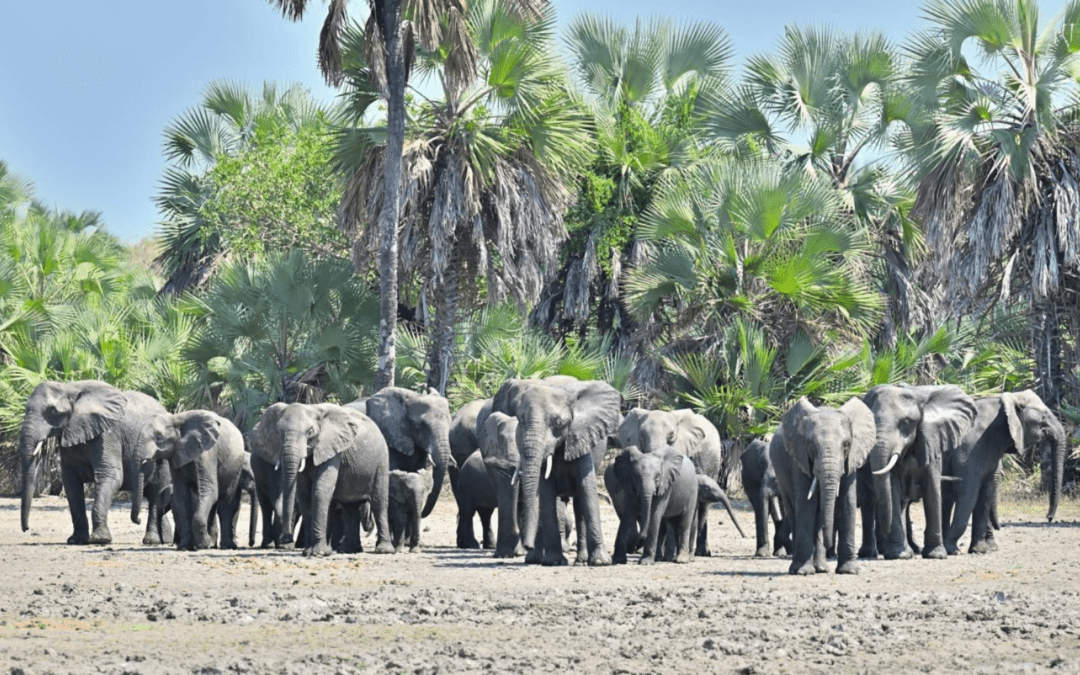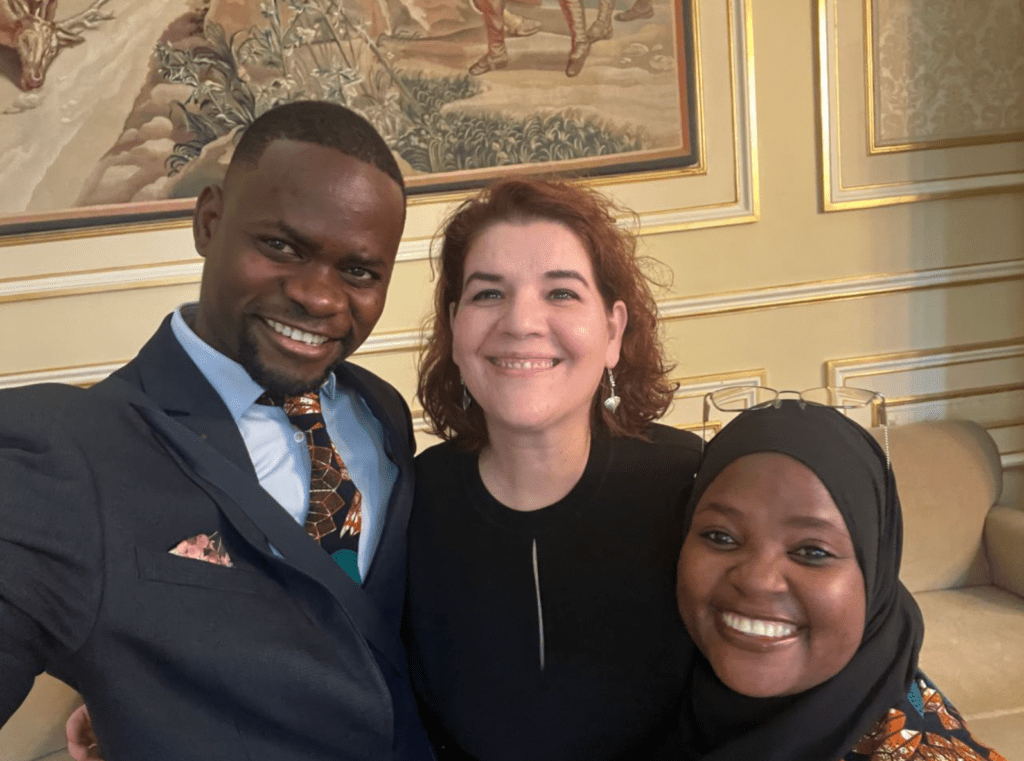Elephants – Gorongosa National Park (Photo – João Fernandes)
Friday, February 21st, 2025
Mozambique’s Gorongosa Restoration Project received the prestigious BBVA Foundation Worldwide Award for Biodiversity Conservation at a gala ceremony in Madrid on Wednesday — a recognition of the successful ecological recovery of Gorongosa National Park over the past 20 years. The award ceremony celebrated “the value of life in all its expressions and all those who engage in its defense,” according to Rafael Pardo, Director of the BBVA Foundation.
The BBVA (Banco Bilbao Vizcaya Argentaria) Foundation expresses the corporate social responsibility of the BBVA Group, one of the largest financial institutions in the world. The Biodiversity Conservation Awards “pay tribute to the leaders giving voice to and defending the interests of all species with which we share the planet. It is for the extraordinary results of its actions in defense of nature that the project has been distinguished with the Worldwide Award for Biodiversity Conservation.”
Dr. Susana Carvalho, Director of the Gorongosa Paleo-Primatology Program, was joined by several Mozambican colleagues as she accepted the award on behalf of the entire team. “Our work is guided by a simple yet powerful belief: that people and nature can thrive together,” said Carvalho in her speech. “This award is a true celebration of our collective efforts. It reminds us of the importance of working together on the conservation of natural wonders such as Gorongosa and shows that nature can rebound if given a chance.”
The Gorongosa team present at the BBVA awarding ceremony; Jacinto Mathe, Susana Carvalho and Rassina Farassi.
The Gorongosa Restoration Project is a co-management partnership between the Government of Mozambique and the Greg Carr Foundation, a US philanthropy. Over the past two decades, the project has received global attention as “the greatest wildlife restoration in history” (National Geographic) as well as lauded for its integrated conservation and human development model.
Gorongosa National Park (400,000 hectares) was once considered one of the greatest national parks in Africa. But wildlife populations crashed during 16 years of civil conflict in Mozambique. In 2004, the Gorongosa Restoration Project began reintroducing wildlife and deploying newly trained rangers to protect them. Over the past two decades, the animals have thrived and now exceed pre-war numbers.
“When we started out two decades ago, there were fewer than 10,000 large animals in the park. Now there are more than 100,000, so we have grown their numbers by a factor of ten,” says the project’s Scientific Director Marc Stalmans. “In the most serious cases, we have secured excellent results with species reintroduction, but others have managed to recover on their own. If you give nature a chance, with good protection, it can rebound spectacularly,” he added.
But restoration and conservation inside Gorongosa National Park is only one part of the project’s approach. Greg Carr, a human rights philanthropist inspired by Nelson Mandela and Mozambique’s former President Joaquim Chissano, contributed support and attracted numerous other donors to deliver extensive healthcare, education, and agricultural development programs in a 600,000 hectares area around the park known as the “Sustainable Development Zone”. The integration of conservation and human development has been critical to the success of the Project.
“An essential part of our work is to improve the lives of people living around the park,” explains Stalmans, “because many of the problems of overexploitation of natural resources that threaten biodiversity are due to poverty and lack of knowledge. Our focus on the economic development and education of local communities is a key factor in any success we have achieved. Hopefully our model integrating conservation and sustainability with the socioeconomic development of the population can serve as an inspiration for other African countries, as the award jury remarked.”
In parallel, the project has sought to ground its conservation strategies on robust science by promoting research on Gorongosa’s extraordinary biodiversity. The research program has documented the existence of almost 8,000 species within the bounds of the park, of which some 200 were previously unknown to science. “Thanks to this rigorous research work,” says Stalmans, “Gorongosa is now one of the best documented national parks in Africa in terms of biodiversity.”
Video about Gorongosa projected at the BBVA ceremony:
About the Gorongosa Restoration Project
The Gorongosa Restoration Project seeks to integrate conservation and human development with the understanding that a healthy ecosystem will benefit humans, who in turn will be motivated to support the objectives of Gorongosa National Park.
For more information about the Gorongosa Restoration Project or to schedule an interview with someone involved in the Project, please contact Vasco Galante by WhatsApp (+258 82 297 0010) or email (vasco@gorongosa.net).
For general information, please visit our website at www.gorongosa.org. You may follow the daily activities of Gorongosa National Park here: https://www.facebook.com/gorongosa/

